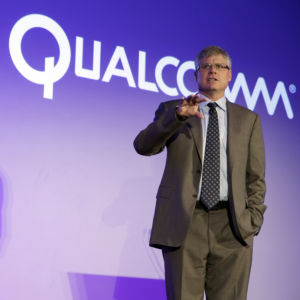The Federal Trade Commission announced Tuesday that it filed suit against chip maker Qualcomm over alleged antitrust violations related to monopoly power used against cell phone manufacturers and competitors for its baseband processors.
The lawsuit relates closely to similar charges in South Korea, and the case may be telling for how this dispute plays out in the U.S. In December, the Korea Fair Trade Commission (KFTC) announced plans to fine Qualcomm over $850 million for antitrust violations. The chip maker pushed back strongly, but InsideSources has obtained an exclusive translation of a press release from the KFTC responding to Qualcomm.
In response to the KFTC, Don Rosenberg, executive vice president and general counsel of Qualcomm, stated: “Qualcomm strongly believes that the KFTC findings are inconsistent with the facts, disregard the economic realities of the marketplace, and misapply fundamental tenets of competition law. … Qualcomm’s repeated requests during the KFTC’s investigation for basic due process rights such as access to the case files and the right to cross examine witnesses were denied,” he said. “These rights and others are supposed to be guaranteed to U.S. companies under the Korea-U.S. Free Trade Agreement, yet the KFTC declined to implement these fundamental procedural safeguards. We are pleased that our appeal will be to the Seoul High Court, which is known to rigorously analyze evidence and apply sound antitrust principles.”
InsideSources has obtained a translated response from the KFTC to Qualcomm’s criticisms. In particular, it pushes back against any claims of violating Qualcomm’s due process rights: “KFTC has been guaranteeing sufficient procedural rights to Qualcomm during the investigation/review process of the Qualcomm matter, in accordance with relevant laws as well as the regulations of the Korea-US FTA.”
Full details of the KFTC decision will not be available until a formal order is released. This may take upwards of six months. Qualcomm has said it plans to appeal the decision to the Seoul High Court.
In 2015, Qualcomm was fined nearly $1 billion for antitrust violations in China and agreed to modify its practices in response.
In the U.S. FTC Republican Commissioner Maureen Ohlhausen dissented from filing the lawsuit. She is expected to take over as acting chair of the FTC after President-elect Donald Trump takes office later this week.

